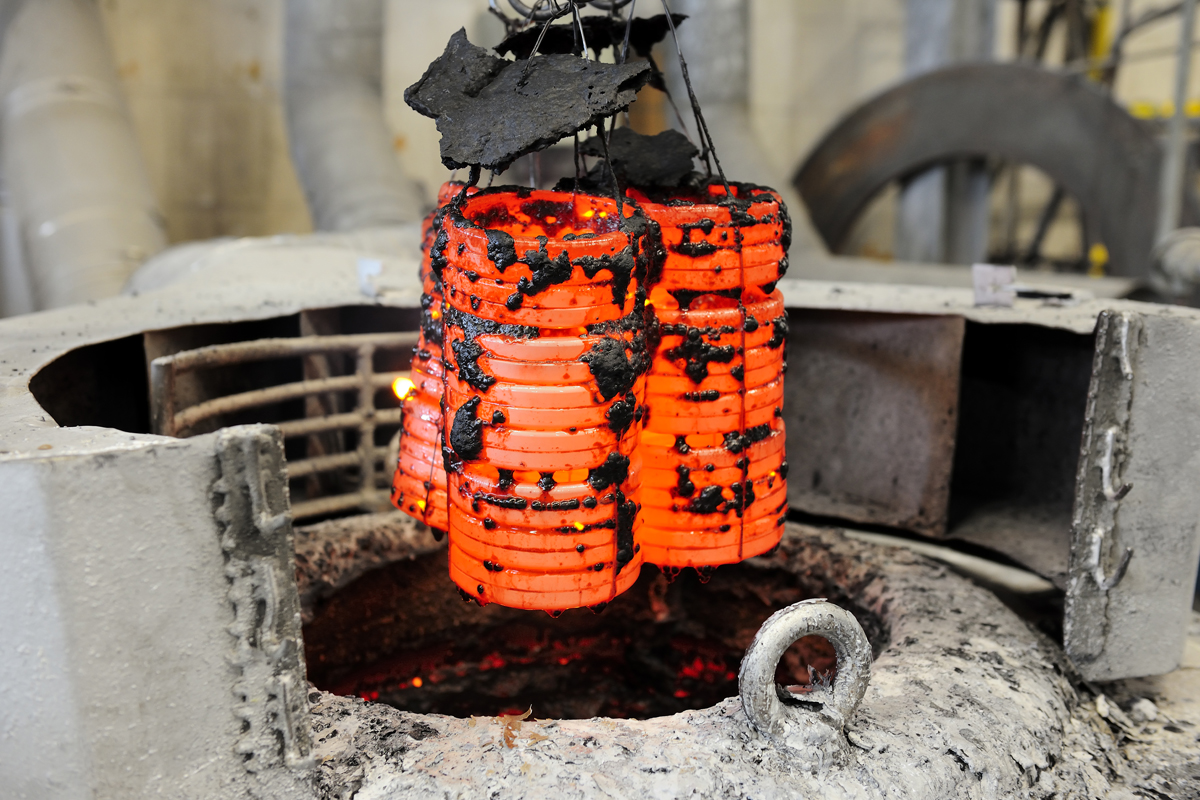Salt Bath Nitrocarburizing
Tenifer® process TF1, Q, QP, QPQ
The TENIFER process (TF1) is a salt bath nitrocarburizing of components in molten salt at temperatures around 580° C.
Besides the addition of nitrogen, carbon also always diffuses into the surface in every TF1 treatment. This is a crucial reason for the positive, specific surface zone properties of salt bath treated components. The TF1 process is currently the most widespread process for nitrocarburization in salt baths, not least because of its environmental compatibility. In many cases the TF1 process is an alternative to other hardening processes, such as case hardening or hard chrome plating, with equal or better quality and ideally suited for individual parts.
An oxidising follow-up treatment in a so-called AB1 bath can improve the corrosion resistance (Q). Further optimisation can be achieved by a follow-up intermediate processing (polishing) (QP) or by an intermediate processing (polishing) with repeated treatment in the AB1 bath (QPQ). QPQ stands for Quench-Polish-Quench and thus includes the Tenifer treatment in combination with a 2-fold oxidative cooling and an intermediate processing (polishing). The components get an aesthetic black surface through oxidation, and in many cases the corrosion resistance of this is superior to that of galvanic surface layers.
Benefits of salt bath nitrocarburizing
- Short treatment times
- Good emergency running properties
- High wear resistance
- Improved corrosion resistance
- An aesthetic black surface


